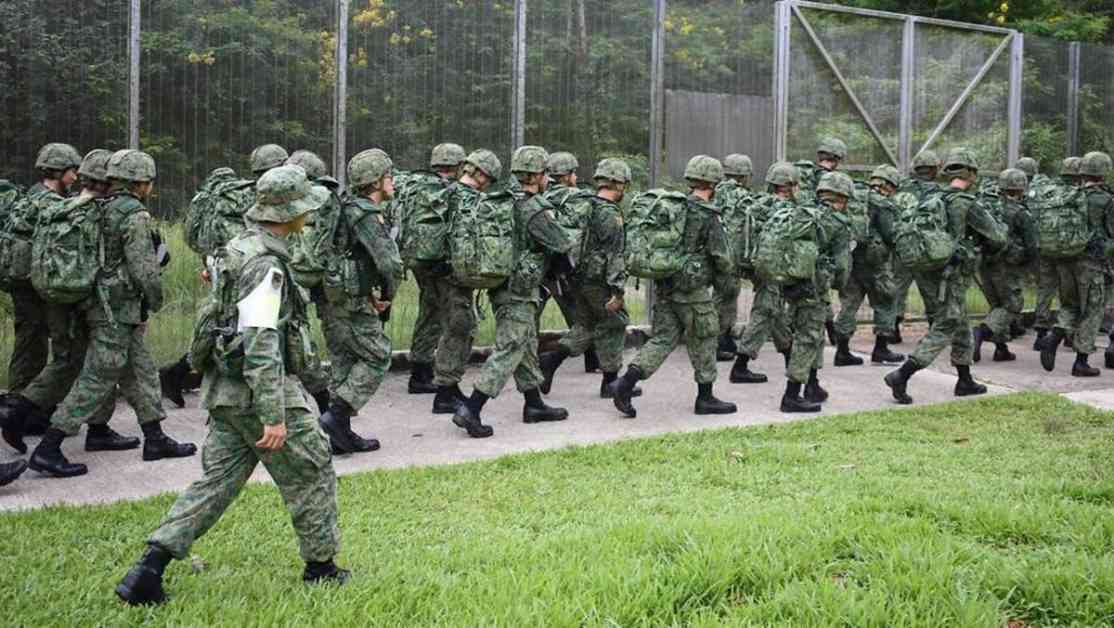MINDEF Confirms Screening Measures to Prevent Unauthorized Individuals from Acquiring Military Skills
In a recent statement, the Ministry of Defence (MINDEF) in Singapore emphasized the importance of screening processes to ensure that individuals who pose security threats are not placed in roles where they can develop military skills. This announcement comes in the wake of the detainment of three radicalized Singaporean men under the Internal Security Act.
One of the detainees, 44-year-old Nurisham Yusoff, revealed that he had acquired weapon-handling skills during his time in the Singapore Armed Forces (SAF) with the intention of joining the military wing of Hamas, the Palestinian militant group. This raised concerns about the potential misuse of skills learned in the SAF for criminal or terrorist activities.
MINDEF spokesperson, in response to queries from Channel NewsAsia (CNA), acknowledged the legitimate security threat posed by national servicemen using their military training for illicit purposes. The Military Security Department within MINDEF is tasked with screening individuals who may pose such threats and ensuring they are not placed in positions where they can acquire soldiering skills or access dangerous equipment.
Collaboration with other government security agencies is a key aspect of MINDEF’s approach to preventing unauthorized individuals from acquiring military skills. Additionally, SAF commanders engage with soldiers regularly to foster cohesion and understanding among individuals from diverse backgrounds.
FIREARMS HANDLING
According to the Internal Security Department (ISD), Nurisham Yusoff had become convinced that it was his religious duty to travel to Gaza and join the Al-Qassam Brigades (AQB), the military wing of Hamas. He had taken steps to prepare for armed violence and believed that his SAF training would be beneficial when he joined the AQB. Nurisham had also planned to refresh his firearms handling skills at a shooting range in Batam.
Despite his radicalization, ISD clarified that Nurisham had not recruited or radicalized others in Singapore and had acted alone in his preparations for joining the AQB. The case underscores the importance of robust screening measures and close coordination between security agencies to prevent individuals from misusing military skills for unlawful purposes.


























